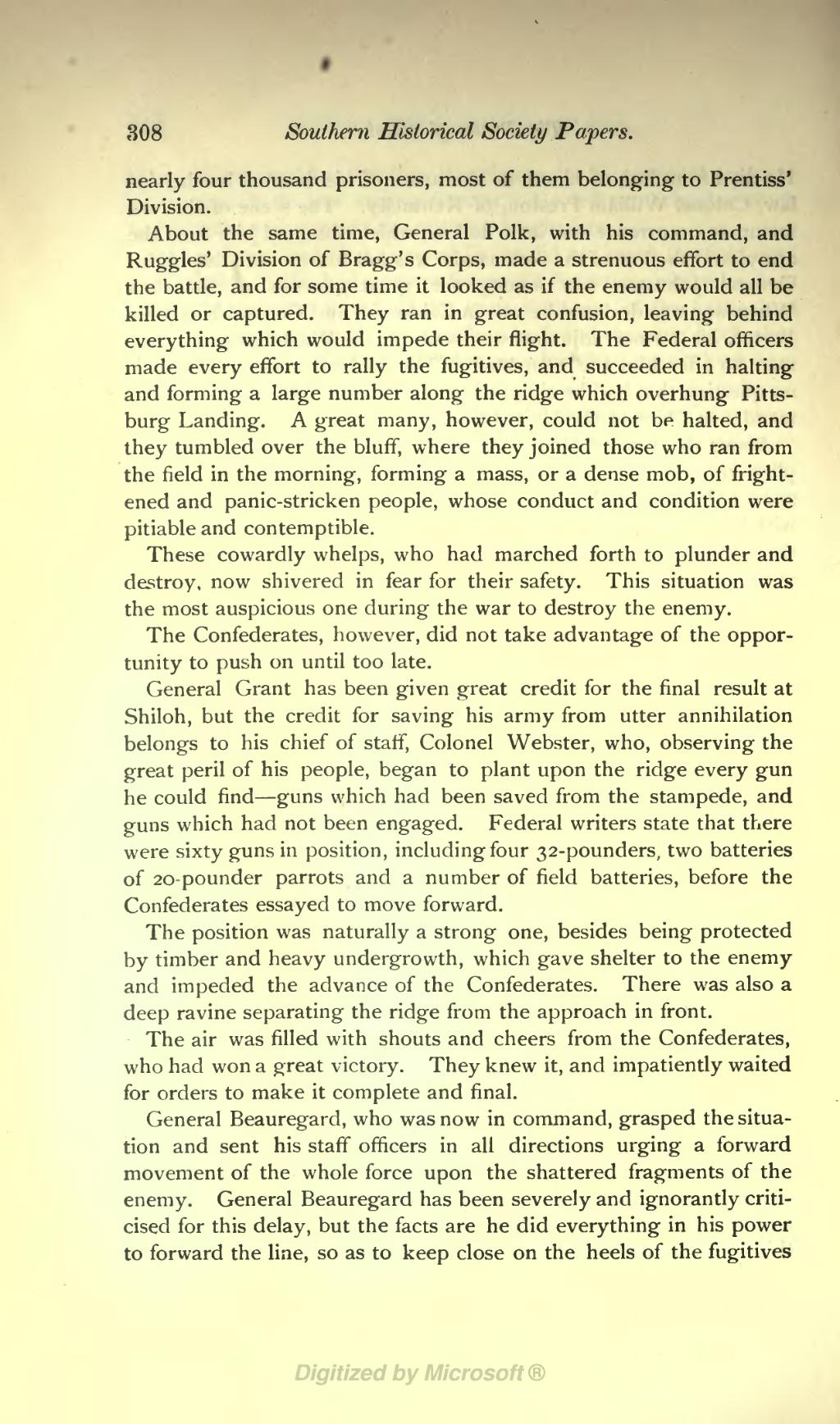308 Southern Historical Society Papers.
nearly four thousand prisoners, most of them belonging to Prentiss' Division.
About the same time, General Polk, with his command, and Ruggles' Division of Bragg's Corps, made a strenuous effort to end the battle, and for some time it looked as if the enemy would all be killed or captured. They ran in great confusion, leaving behind everything which would impede their flight. The Federal officers made every effort to rally the fugitives, and succeeded in halting and forming a large number along the ridge which overhung Pitts- burg Landing. A great many, however, could not be halted, and they tumbled over the bluff, where they joined those who ran from the field in the morning, forming a mass, or a dense mob, of fright- ened and panic-stricken people, whose conduct and condition were pitiable and contemptible.
These cowardly whelps, who had marched forth to plunder and destroy, now shivered in fear for their safety. This situation was the most auspicious one during the war to destroy the enemy.
The Confederates, however, did not take advantage of the oppor- tunity to push on until too late.
General Grant has been given great credit for the final result at Shiloh, but the credit for saving his army from utter annihilation belongs to his chief of staff, Colonel Webster, who, observing the great peril of his people, began to plant upon the ridge every gun he could find guns which had been saved from the stampede, and guns which had not been engaged. Federal writers state that there were sixty guns in position, including four 32-pounders, two batteries of 2O-pounder parrots and a number of field batteries, before the Confederates essayed to move forward.
The position was naturally a strong one, besides being protected by timber and heavy undergrowth, which gave shelter to the enemy and impeded the advance of the Confederates. There was also a deep ravine separating the ridge from the approach in front.
The air was filled with shouts and cheers from the Confederates, who had won a great victory. They knew it, and impatiently waited for orders to make it complete and final.
General Beauregard, who was now in command, grasped the situa- tion and sent his staff officers in all directions urging a forward movement of the whole force upon the shattered fragments of the enemy. General Beauregard has been severely and ignorantly criti- cised for this delay, but the facts are he did everything in his power to forward the line, so as to keep close on the heels of the fugitives
